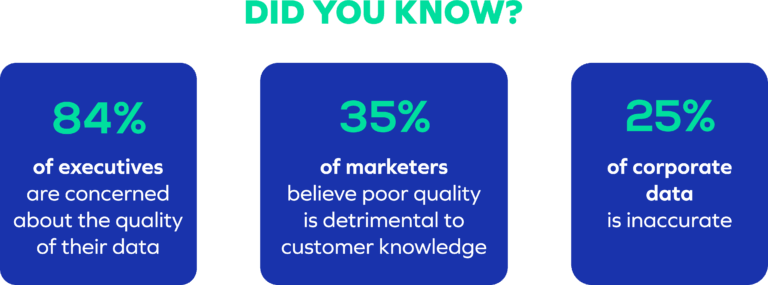In retail, clienteling has everything to gain from data quality


Data quality: a key ingredient of clienteling in retail
- Cumbersome data entry steps: whether online or in-store, lengthy and tedious forms without automation can be frustrating. They are likely to introduce errors into the data meant to support clienteling efforts.
- Bounces and undelivered packages: how can a lasting relationship be maintained if communications and deliveries don’t reach their destination? Incorrect contact details are often the reason emails and packages don’t reach customers, with email errors alone accounting for 20% of delivery failures in e-commerce (MetaPack).
- Duplicates: multiple copies of communications, duplicate mailings and catalogs sent to the same address are all signs of duplicate entries in the database. Loyalty programs also suffer from duplicates in retail. If a customer exists under several contact records in the database, their purchase history becomes fragmented, undermining the tracking of loyalty points. Watch out, 19% of companies lose a customer due to the proliferation of duplicate records in their database (Ecommerce News).

Data Quality's capabilities serving retailers

Clienteling that is finely tuned all the way to the sale
On the other hand, email validation ensures a deliverability rate close to 100%. In targeted and personalized campaigns at the heart of clienteling, this deliverability enhances customer satisfaction, which in turn leads to higher opening and conversion rates. This is the case, among others, at IZAC: “DQE provides us with unified and qualified customer data, a prerequisite for applying our targeting rules to a controlled database. Our emailing campaigns have now improved in deliverability with a rate of 99%, but also a better opening rate” explained Victoire Lausdat, Director of CRM.
About DQE
Because Data quality is essential to customer knowledge and the construction of a lasting relationship, since 2008, DQE has provided its clients with innovative and comprehensive solutions that facilitate the collection of reliable data.


